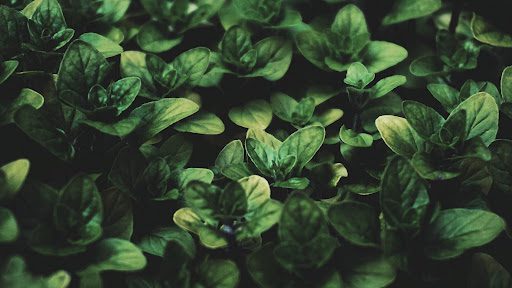Have mosquitoes been pestering you as you spend quality time in your backyard or patio? Don’t enjoy the overwhelming smell of citronella candles? You may be surprised to know that many beautiful landscaping plants are effective mosquito repellents! Try incorporating these insect-repellent plants into your home and outdoor seating areas to repel mosquitoes.
Mosquitoes can be a real nuisance, especially during the summer months. They can transmit diseases like the Zika virus, West Nile virus, and malaria. In Maine, the number of mosquito-borne illnesses has increased in recent years. So, it’s important to take precautions to protect yourself and your family from these pesky insects.
In this blog post, we will discuss some of the best plants for keeping bugs away. Using plants that naturally repel mosquitoes can keep your yard mosquito-free without using harsh chemicals.
Mosquito Repellent Plants In Maine
If you’re looking for a natural way to keep mosquitoes away from your home, try planting some of these mosquito-repelling plants. With a little bit of care, you can create a beautiful and pest-free outdoor space that you and your family can enjoy all summer long.
1. Basil
Basil is a versatile herb that can be used in various dishes, from pesto to pasta sauce. It’s also an effective mosquito repellent, as the strong smell of basil deters mosquitoes and other insects. You can grow basil in your garden or pots on your deck or patio. If you have mosquitoes in your yard, consider planting a Basil Mosquito Barrier. This is a dense hedge of basil that will help to keep mosquitoes away from your home.
In addition to deterring mosquitoes, basil is also a nutritious herb. It’s a good source of vitamins A and C, iron, and calcium. So not only will it help to keep your yard mosquito-free, but it will also give you a healthy boost when you use it in your cooking.
2. Catnip
Catnip (Nepeta cataria) is a member of the mint family and has a strong, distinct smell. It’s also a very effective mosquito repellent. Catnip is so effective at repelling mosquitoes that it is often used in commercial mosquito repellents. The plant contains an essential oil called nepetalactone, which is a cat attractant. Interestingly, this same compound repels mosquitoes.
Nepetalactone binds to receptor sites in the insects’ antennae, interfering with their ability to detect carbon dioxide. This makes it difficult for them to find hosts, and as a result, they are less likely to bite. If you have cats, you may want to grow catnip in pots to keep them away from your other plants.
3. Citronella Grass
Citronella grass is lemongrass containing citronellal, an oil that repels mosquitoes. This plant is often used in commercial mosquito repellents, as it is can help keep these pests away. Citronella candles are made from the oil of this plant, and they can help to keep mosquitoes away from your outdoor seating areas.
If you want to grow citronella grass in your yard, it’s best to start with seeds or young plants. The plants need full sun and well-drained soil to thrive. Citronella grass can reach up to six feet tall, so ensure you have enough space for this plant in your yard.
4. Alliums
Alliums are a type of onion that includes garlic, chives, and leeks. These plants have a strong smell that repels mosquitoes and other insects. Alliums also deter rabbits, deer, and moles. So, if you’re looking for a plant that will help to keep your yard free of pests, alliums are a good choice. In addition to being pest-resistant, alliums are also quite drought-tolerant. Once they’re established, they don’t need much water to thrive.
Alliums are perennial plants, so they will come back year after year. And because they’re such low-maintenance plants, alliums are perfect for busy gardeners or those who don’t have a lot of time to devote to their yards.
5. Bee Balm
Bee balm is a type of mint that is native to North America. This plant has a strong, aromatic smell that deters mosquitoes and other insects. Bee balm is also an attractant for bees, butterflies, and hummingbirds. So, if you’re looking for a plant that will help keep your yard free of pests and attract beautiful pollinators, bee balm is a good choice.
Bee balm plants can grow to be up to three feet tall, making them a perfect backdrop for shorter plants. They are low-maintenance and can be propagated by seed, division, or cuttings. It can tolerate both full sun and partial shade. With proper care, bee balm will bloom from early summer until the first frost.
6. Cedar Tree
Cedar trees are coniferous trees that are native to the mountains of the Himalayas. These stately trees can grow to be up to 100 feet tall. Cedar trees are often used as ornamental plants in yards and gardens. But these trees also have mosquito-repelling properties. The oils in the cedar tree’s needles help to repel mosquitoes and other insects.
If you need a mosquito-repelling plant that will make a statement in your yard, a cedar tree is a great choice. Just keep in mind that these trees need full sun and well-drained soil to thrive. They also tend to drop their needles, so you may want to place them away from areas where you entertain or relax.
Tips From The Pros
Here are a few tips to help you get started:
- Start with seeds or young plants. Citronella grass, bee balm, and cedar trees are all good options.
- Plant them in full sun in well-drained soil. Alliums, bee balm, and cedar trees all prefer full sun. But citronella grass will also do well in partial shade.
- Water them regularly. Citronella grass, bee balm, and alliums are drought-tolerant plants. But cedar trees will need to be watered more often.
- Place them around your yard or garden. Citronella grass can reach up to six feet tall, making them perfect for planting along the perimeter of your property. Bee balm and alliums make good border plants. And cedar trees can be planted as specimen trees in your yard or garden.
Tired Of Those Pesky Mosquitos?
Do you want to add anti-mosquito plants to your landscaping? We can help! Stone Solutions Maine offers professional garden landscaping in the greater Portland area. Our team of experts can advise you on the best plants to choose for your yard or garden. We can also help you with the planting and care of your new plants.
Call us today for a free estimate.

